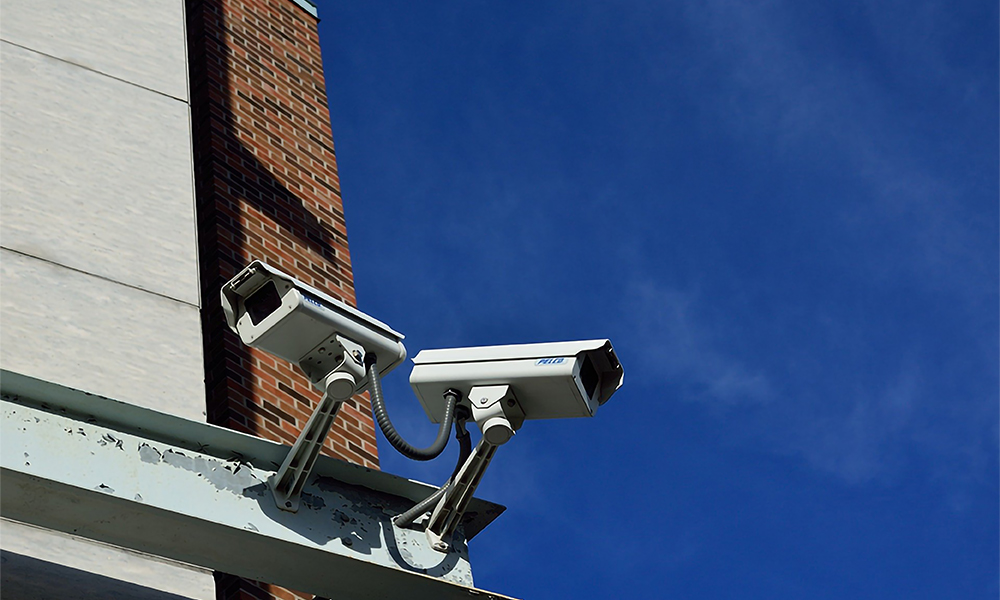Moment Debate | Does Electronic Surveillance Threaten Democracy?

DEBATERS
Rachel Levinson-Waldman is deputy director of the Liberty and National Security Program at the Brennan Center for Justice.
Benjamin Wittes is co-director of the Harvard Law School–Brookings Project on Law and Security and a member of the Hoover Institution’s Task Force on National Security and Law.
INTERVIEW WITH RACHEL LEVINSON-WALDMAN
Does electronic surveillance threaten democracy? | Yes
Does electronic surveillance threaten democracy?
Yes. What undermines democracy is the use of electronic surveillance by government without tight limits: judicial oversight, transparent policies and publicly available information after the fact. It’s not that in a vacuum, electronic surveillance automatically poses a threat to democracy. But under the conditions where we frequently see it operating—without oversight, without public knowledge and disproportionately targeted against certain communities and activists—then it does. It needs to be restricted to lawfully authorized purposes like criminal activity or foreign intelligence. When it comes to surveillance used as a tool to harass, retaliate or punish people, without appropriate safeguards, there are two recent examples. One is deportations. ICE really flexed its muscle under the Trump administration, and it exchanges a lot of data with state and local governments. Even in supposed sanctuary cities, a lot of data sharing may fly under the radar: location data from social media or from license plate scanners, possibly even data from schooling and housing programs. All of these very powerful tools of government surveillance and analytics are being brought together to deport people, often people whose only crime was unlawful entry. The other big example is the surveillance of Black Lives Matter protests by the FBI and the Department of Homeland Security (DHS), including surveillance of activists’ social media and use of planes flying over protests. It’s very troubling when the federal government is engaged in monitoring of lawful activity. And if a police department or the FBI used electronic surveillance on people who were engaging in constitutionally protected activities, without suspicion of a crime, that would be a threat even if it went through proper channels.
It’s very troubling when the federal government is engaged in monitoring of lawful activity.
How do you balance surveillance with security?
Privacy doesn’t override a legitimate national security interest. The premise of the Brennan Center program I work for is that you can have strong security and strong civil liberties; they aren’t in conflict. In fact, security is often stronger when you have stronger civil liberty protections, in part because you don’t put time and money into programs that don’t work. After 9/11, the New York Police Department surveilled Muslim communities. They mapped people who went to halal markets and cafés and gathering places, actions that were incredibly chilling and alarming to the Muslim community—and they said later that it didn’t produce a single lead. Edward Snowden revealed that the National Security Agency (NSA) was collecting all the telephone metadata in the United States, and after a huge public debate the program was restricted. But then the NSA stopped using it, because it couldn’t operate the program within legal limits, and the data it was collecting wasn’t that important.
Are private companies part of the problem?
A major concern about private data brokers is the relationship between them and the government. We don’t have a good umbrella privacy statute, and the government is buying up lots of location data, mostly for immigration but also for other purposes. If you have a driver’s license, buy things, download apps, fly, check the weather, tons of information will be collected about you. The Supreme Court has ruled that location information gathered by cell phone providers can’t be handed over to government without a warrant. But a lot of information can go “downstream” to data brokers on whom there are very few restrictions.
Does improving technology make the problem worse?
As facial recognition technology becomes more sophisticated, access to Department of Motor Vehicles (DMV) databases is a greater concern. People don’t walk into a DMV thinking their pictures will be searchable in a database. Anyone online is vulnerable to a ton of tracking and data collection. The use of that data by repressive governments is the worst-case scenario. China is a web of surveillance technology, from real-time facial recognition to “social credit” scores, which has been turned against the Uighur population in devastating ways. I doubt anyone expects the U.S. to replicate China, but it’s a window into the way these unchecked technologies can be absolutely destructive of a democratic society or of any ability to express unpopular views—or to engage in the small infractions everyone commits every day. One of the hallmarks of a democratic society is that there’s some give. You don’t actually want people targeted for every little thing. Overwhelming surveillance technology gives government the power to target anyone they dislike and watch their every move; sooner or later, they’ll do something wrong.
Are Jews especially threatened by surveillance?
Even if surveillance is not being used against Jews, we have an obligation to raise a concern when it’s disproportionately deployed, especially to deport people. It’s a combination of history and values. We know the importance of being able to dissent, associate, speak freely, and the dangers when the power to monitor and target vulnerable populations is in the hands of a powerful government.
INTERVIEW WITH BENJAMIN WITTES
Does electronic surveillance threaten democracy? | No
Does electronic surveillance threaten democracy?
No, electronic surveillance is essential for democracy. Taking away the authority to conduct surveillance on electronic platforms would not allow free thought to flourish but rather would enable violent anti-democratic activists to organize unmolested. Ask yourself, should the only control on violent white supremacists on Facebook be…Facebook?
We just had four years of an anti-democratic president who abused all kinds of power. But one of the reasons Donald Trump went to war against the FBI was because he couldn’t abuse it enough. He couldn’t shut down investigations he wanted shut down, or loose the FBI on Hillary Clinton, James Comey or Hunter Biden. So that suggests that the surveillance regime is relatively under control. Misused, of course, it can threaten democracy, like any other tool that democratic governments use to protect ordered liberty and authoritarian governments use to control people.
There is no effective counterterrorism without collection of data. There is no effective countering of white supremacy, because these groups organize online. There’s no cybersecurity. And that’s just preventing bad things. There also needs to be legitimate espionage. We’ve all spent four years complaining about Russian intervention in the 2016 election and wanting that investigated. That requires a whole lot of forensic analysis of Russian platforms. Some of those indictments can tell you what desk in St. Petersburg sent what tweet pretending to be the Tennessee Republican Party. They didn’t get that information by asking for it. That’s a democracy defending itself using surveillance.
How do you balance surveillance with security?
One bad sign is when you see the intelligence community collecting information domestically the way it does abroad. When the intelligence services operate abroad, they have a pretty free hand. In the U.S., it’s much more confined. The Justice Department can’t just investigate you because they’re interested; they need a reason, a predicate. If they follow the rules, it doesn’t threaten democracy. If, on the other hand, people are peacefully protesting in Portland, Oregon, and local police or Department of Homeland Security intelligence collect their electronic communications and report on them and keep files based on their purely First Amendment protected activity, that’s a problem. It actually happened to me. I was commenting on the protests from Washington and they issued intelligence reports about me and my Twitter feed and leaked them to The Washington Post. So I have zero confidence they were following the rules in Portland.
Abuses do happen, but on the whole the system works pretty well. And in gun violence and police shootings, we’re more likely to have too little information than too much. Say someone shoots up a school and we didn’t see his social media sites where he was saying, “Off to shoot up a school now!” We weren’t looking, or we weren’t authorized to look. Authoritarian systems don’t have this problem.
Ask yourself, should the only control on violent white supremacists on Facebook be…Facebook?
Are private companies part of the problem?
Data brokers collect information about you whether you want them to or not. I think what they do is offensive to privacy, but I’m not sure whether it’s a threat to democracy. Facebook is much more complicated, because social media adds some good things to the world. It allows people to organize politically, including in some authoritarian countries, and it combats isolation. That said, if you look at what the Russians were able to do using social media micro-targeting of communities in 2016 and the role Facebook has played in the rise of deranged conspiracy theories, this is a very scary thing democratically. I don’t know the answer, but I don’t think the fundamental problem is the surveillance. Nobody is guiding it editorially from outside.
Does improving technology make the problem worse?
You used to have to physically attach an alligator clip to someone’s phone line to surveil them electronically, and then listen to the tapes. Now you can collect on a huge number of people at the same time, if you have the authority, and process the information just by pressing a key. But I don’t think it fundamentally changes the principle that, if you want activity on a platform to be non-democratically-threatening, you have to police that platform. You want a police presence on the National Mall when the Proud Boys rally, and I feel exactly the same way about electronic platforms.
Are Jews especially threatened by surveillance?
Vulnerable communities have a greater interest in proper surveillance of people who threaten them. Israel is generally cheerful about surveillance. The Jewish community has a more than average interest in reasonable surveillance of neo-Nazis. And communities that have faced oppression have an acute interest in the restraints on government that prevent that kind of thing. As Jews, we’re invested in both sides of the equation—and in getting the balance right.


One thought on “Moment Debate | Does Electronic Surveillance Threaten Democracy?”
Is electronic surveillance equipment an invasion of privacy?